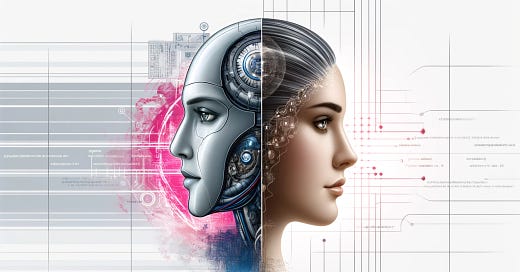🚀 Weekly Tech Recap: Chip Happens (May 12–18, 2025)
Here's something different, a new GenAI service from AWS. And move over RegularSQL, NoSQL & CurrentSQL, there's a NewSQL in town.
Transformative AI
There is a fascinating new service launched from the AWS flotilla named “Transform” Now marked GA, it promises to migrate old-school enterprise-y workloads & code directly into the mothership using the power of GenAI to succeed where mere mortals have failed for decades.
Step Right Up! Dot NET, Cobol, VMWare - nothing is too old or too mission-critical for the power of our digital brains to rewire in a jiffy!
The most interesting part of this offering is how AWS claim to have:
“AI agents trained on 19 years of AWS migration experience and deep knowledge across .NET, mainframe, and VMware workloads”
Where does all this experience come from?
AWS ProServe - their consulting arm - is very good about embedding engineers with customers’ teams to assist with cloud migration, architecture and cloud native project development, and even better at ensuring the knowledge & lessons gained by its field engineers can be re-used internally for better future customer service.
This means the process that helped one customer inevitably helps the next - which is good engineering practice however the level of “secret sauce” sharing behind the would make me somewhat nervous.
Now the kicker. Deep within the TOS the customer commits to 2 (two) years of running their converted service on AWS infrastructure.
Update: As of the 20th May, this clause is reported to have been removed from the contract, suspiciously quickly after this news hit the pavement.
NewSQL
It pains me to write as much as it hurts you to read. But the good news is that NewSQL databases promise to provide the horizontal scale of NoSQL while maintaining the ACID (Atomicity, Consistency, Isolation & Durability) properties of traditional SQL systems with a familiar query syntax.
The CAP theorem reminds us that Consistency Availability & Partition Tolerance are always at odds with each other. NewSQL promises to streamline these underlying limitations in new (exciting?) ways.
The term was coined by researchers in 2011, and has been adopted by number of vendors which are not quite RDBMS and not quite NoSQL either.
Just think of them as distributed clusters of SQL servers, drop the keyword at your next standup, and walk away, don’t look back.






